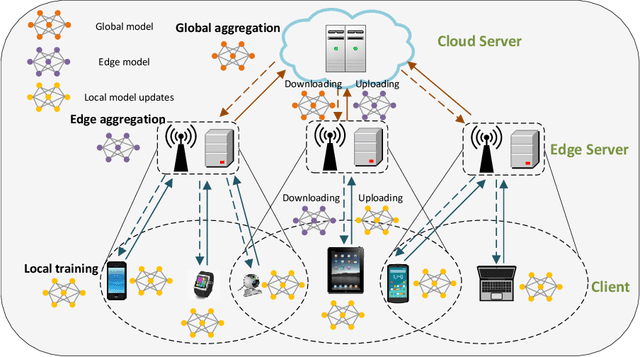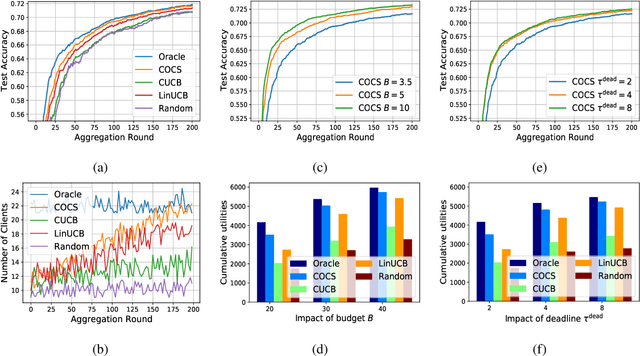Context-Aware Online Client Selection for Hierarchical Federated Learning
Paper and Code
Dec 03, 2021



Federated Learning (FL) has been considered as an appealing framework to tackle data privacy issues of mobile devices compared to conventional Machine Learning (ML). Using Edge Servers (ESs) as intermediaries to perform model aggregation in proximity can reduce the transmission overhead, and it enables great potentials in low-latency FL, where the hierarchical architecture of FL (HFL) has been attracted more attention. Designing a proper client selection policy can significantly improve training performance, and it has been extensively used in FL studies. However, to the best of our knowledge, there are no studies focusing on HFL. In addition, client selection for HFL faces more challenges than conventional FL, e.g., the time-varying connection of client-ES pairs and the limited budget of the Network Operator (NO). In this paper, we investigate a client selection problem for HFL, where the NO learns the number of successful participating clients to improve the training performance (i.e., select as many clients in each round) as well as under the limited budget on each ES. An online policy, called Context-aware Online Client Selection (COCS), is developed based on Contextual Combinatorial Multi-Armed Bandit (CC-MAB). COCS observes the side-information (context) of local computing and transmission of client-ES pairs and makes client selection decisions to maximize NO's utility given a limited budget. Theoretically, COCS achieves a sublinear regret compared to an Oracle policy on both strongly convex and non-convex HFL. Simulation results also support the efficiency of the proposed COCS policy on real-world datasets.
 Add to Chrome
Add to Chrome Add to Firefox
Add to Firefox Add to Edge
Add to Edge